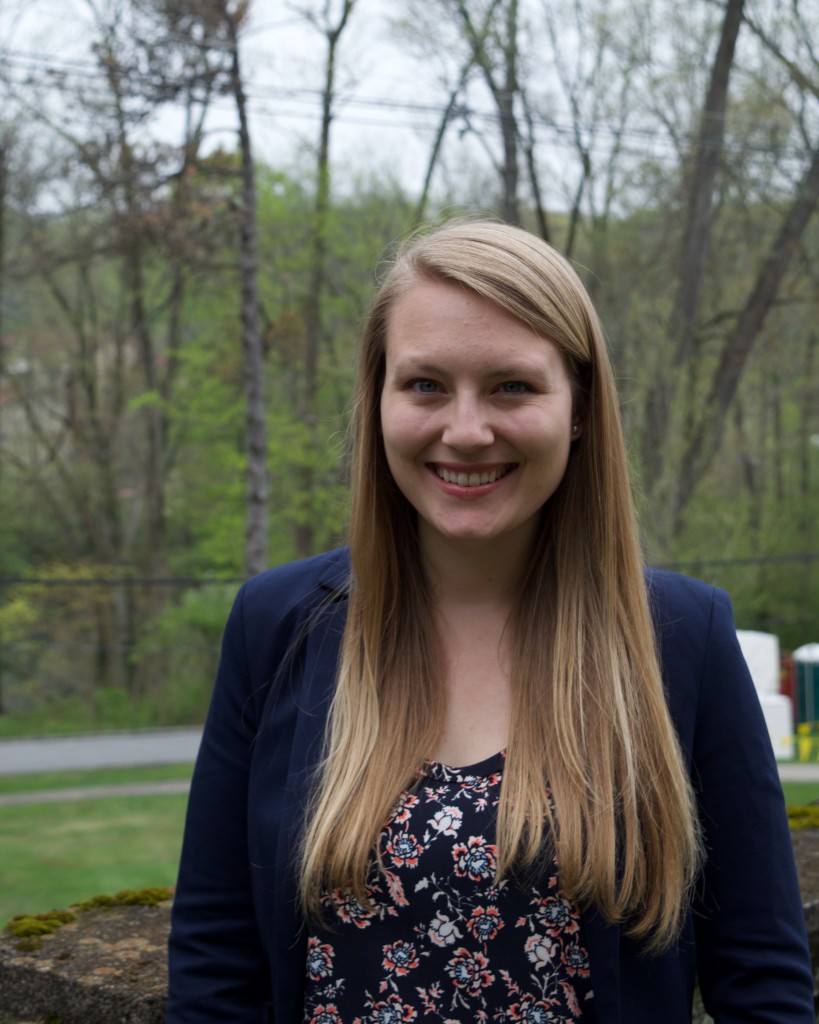Meeting with recent graduate of Eastern University, Jordan Kolb, I got a glimpse of what post-graduate life is like for at least one student, and I was encouraged to hear Jordan talk about the experiences at Eastern which prepped her for stepping out into the work world. Jordan provided a perspective on education that was at once simple and wholesome. Her view on education was simple because even when things are undecided and seemingly complex, there is a fundamental reason we work. It was wholesome because the simplicity of our work is in the end promoting wholeness in ourselves and the world. But I’m getting ahead of myself. First I’ll provide some background.
Jordan Kolb graduated from Eastern University this past spring with her bachelor’s degree in English Literature. She now teaches sixth through eighth grade language arts and sixth grade Old Testament in The City School, a private Christian K-12 in the Philadelphia area. Part of what drew Jordan to The City School was their commitment to being accessible to everyone. On their website, The City School says, “We believe an excellent education should be accessible for families in the city.” Another reason Jordan chose to work at this school is its location. Jordan discussed with me how grateful she is to be able to stay in the Philadelphia area so that she can live with her friends (all recent graduates of Eastern University as well), and be near her immediate family.
Jordan shared with me her own thoughts about education, which she knew throughout her time at Eastern was the career path she wanted to follow. Her philosophy of teaching encapsulates the idea that scholarship is an extension of the Christian life and an integral part of being a Christian. Throughout her education at Eastern, she learned to ask important questions: What is the best way we can serve students? What is the purpose of education? Are we meeting it? In the English Literature department specifically, Jordan learned that she processes the world best through the lens of literature.
A student in both Eastern as a whole and in the Templeton Honors College, Jordan shared how the university and the college helped shape her education. As she explained to me, Templeton approaches subjects by backtracking and looking at the roots of things, whereas Eastern as a whole focuses on the present, which includes acknowledging current injustices and seeing how we can help heal those affected. She said that both those approaches were a necessary part of her education. She also reflected on how the type of education she received influenced her desire to work at a school that is accessible and racially diverse.
When I asked Jordan what piece of advice she would give students as a recent graduate herself, she told me two things. The first was that she learned that it’s less about finding exactly the right field of work, or the perfect job, but about realizing the reason for which we work. The reason we work is to “build up goodness in the world” and, she added, “we do that, or theoretically we are supposed to do that, in whatever sphere we are in.” Rather than focus too much on particulars, it is just as important to understand that we are acting out an extension of the calling to build goodness through our work. The second piece of advice she gave is “do as many shenanigans as you can while you can.” At first she made it seem like the shenanigans go away when you graduate, but she amended. The shenanigans are simply less frequent and tend to occur before 9 p.m. on a school night, or 11 p.m. on a weekend.
Sources: cityschool.org

